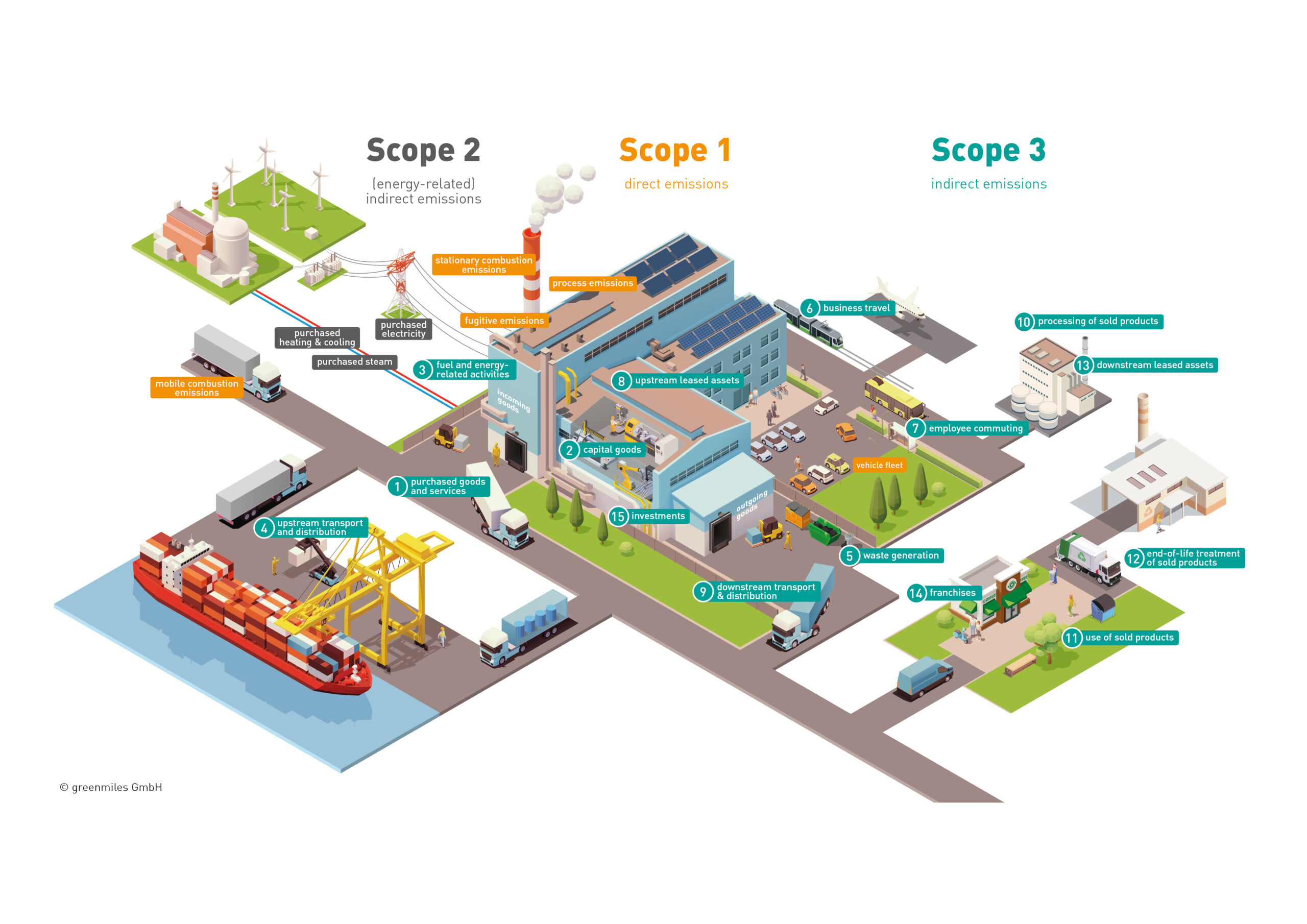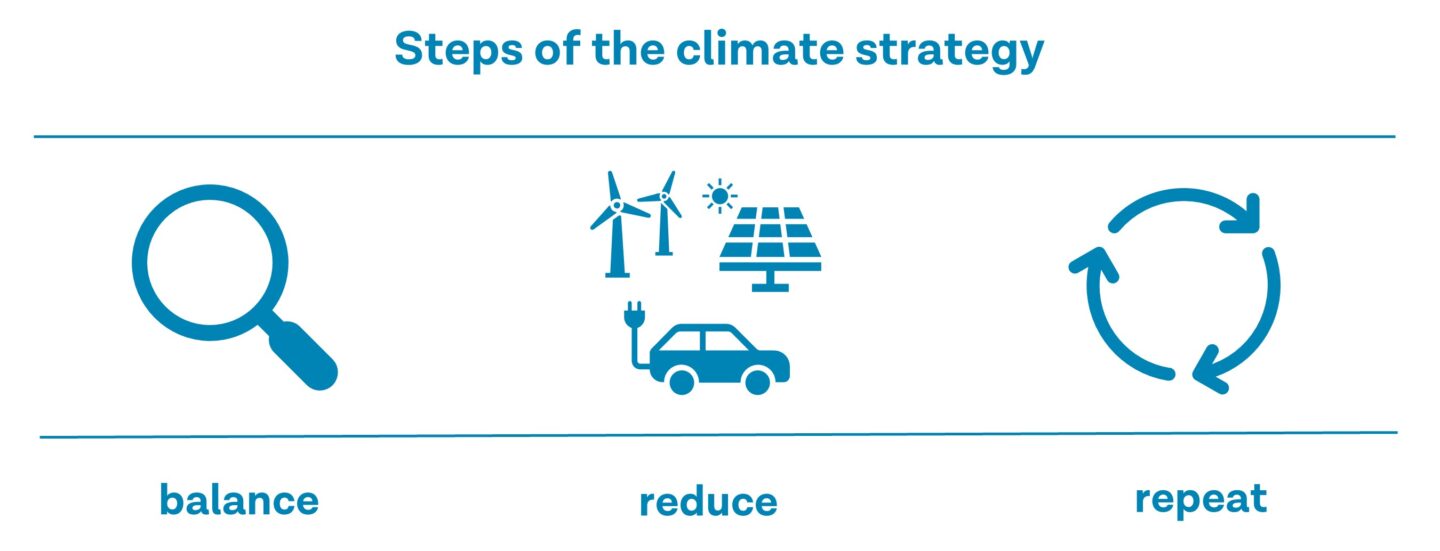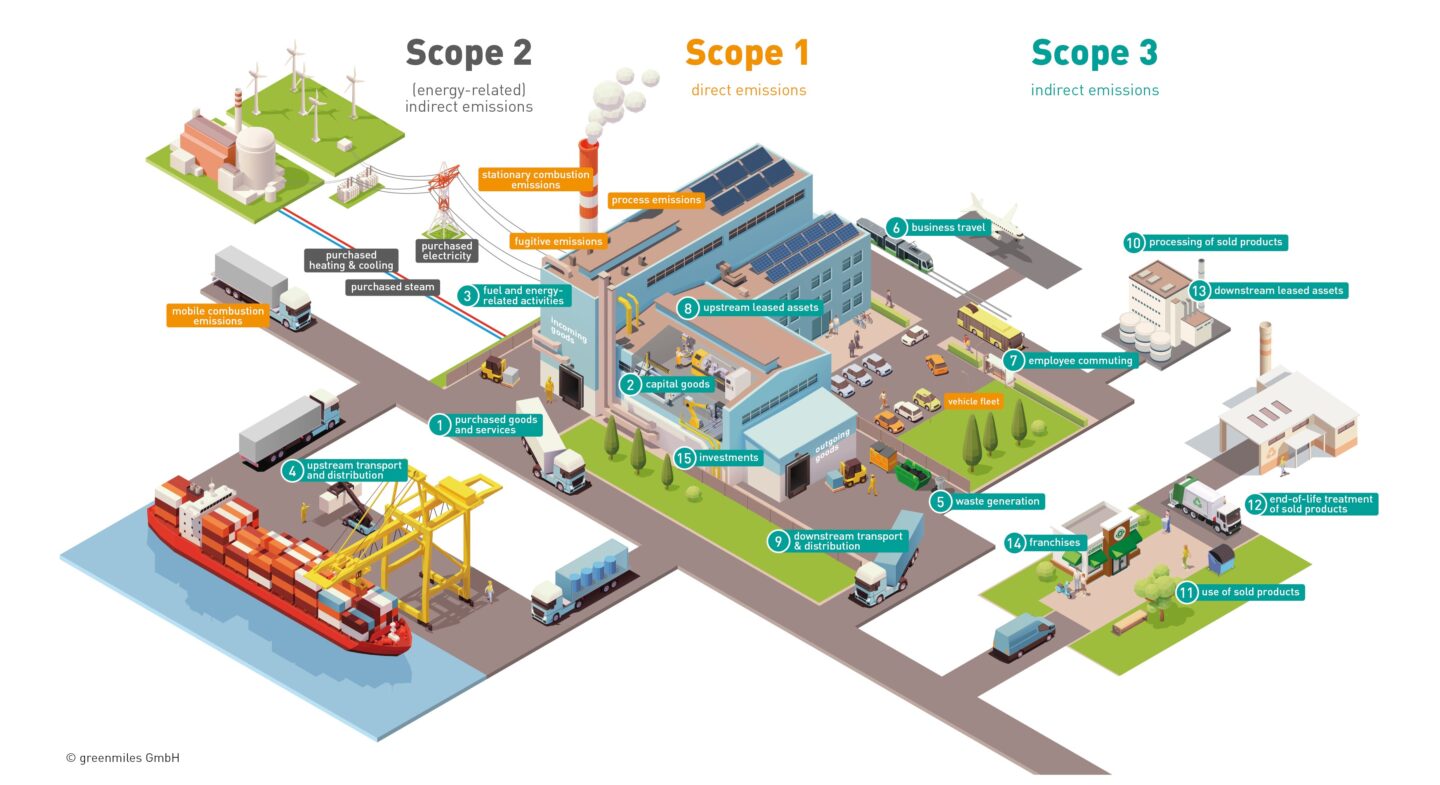
Decarbonisation:
Climate Strategies for companies
The climate crisis has been a socially relevant issue for a long time – now it is increasingly also a business issue. If you want to be successful on the market tomorrow, you have to act now and set a new course. This applies to more and more sectors and industries. Hamburg Institut accompanies energy-intensive industry in particular on the path to climate neutrality and is a professional contact for a wide range of services, from calculating the carbon footprint to developing a climate strategy and monitoring the implemented measures.
Until a few years ago, companies were motivated to do business in a climate-friendly way solely on their own initiative, but now the pressure is growing from many sides: Legal requirements make action just as necessary as increasing demands from customers and business partners. The expectations of the market environment and the public are changing: awareness of sustainable products and verifiably climate-neutral processes is growing, so that climate protection is increasingly becoming an economic factor and an indicator of competitiveness.
Corporate climate neutrality: from project to process
A new dynamic has emerged that is setting more and more sectors in motion. In us, companies find a sparring partner who adapts individually to their circumstances. Our team combines market knowledge and an overview of the regulatory framework and funding landscape with technical and economic know-how – and a good dose of pragmatism.
We are thorough and we are honest. This is how some expensive illusions can end right at the beginning of the cooperation. For example, the illusion that the essential job is already done by setting climate targets. Spoiler: First a well-founded analysis, then the publication of climate targets – that is usually the better order. Or that the climate strategy is a manageable, self-contained project. Spoiler: It is a continuous process that requires structures and will accompany the company for many years.
Change offers great opportunities
One thing is for sure: The goal of climate neutrality offers great opportunities for companies – both externally on the market and internally for the corporate culture. Seldom has interdepartmental cooperation been so important as in the ambitious task of “zero emissions”. Let’s tackle the change together!

Our Services
How can transformation concepts be anchored in companies and organisations? We answer this question with our modular advisory services. The building blocks are put together into an individual service package depending on the company and the status of its activities.

Greenhouse gas accounting (CCF/PCF)
In the carbon footprint, the greenhouse gas emissions of a company (Corporate Carbon Footprint CCF) or product (Product Carbon Footprints PCF) are recorded and documented within defined system boundaries. In the course of calculating the CCF or PCF, we collect data, determine the emission factors from primary and secondary sources and set up a data management system with which the balancing process can be continued on an ongoing basis. This is because the CCF in particular serves as a continuous performance review of the targeted decarbonisation path.
PCF, on the other hand, can be very complex due to the many different materials within a product. We specialise in complicated PCF and work with our customers to develop tools with which the updates that are required at increasingly shorter intervals can be created largely independently.

Potential analysis & action plan
With our expertise in electricity and heat from renewable energies, energy efficiency and decarbonisation of the primary industry, we identify and evaluate possible measures for emission reduction in Scope 1 to 3 (see chart). We analyse scenarios for technical solution paths as well as central fields of action and draw up a prioritised action plan based on the findings collected. This describes the individual steps and thus the most effective way for the company to achieve the goal of climate neutrality.

Reduction path
The reduction path forms the basis for setting climate targets and is thus a central element of the climate strategy. It shows the possible course of the corporate carbon footprint and is the result of an ongoing process in which a variety of influencing factors such as site-specific calculations, potential analyses and forecasts converge. Therefore, the reduction path is dynamic and may have to be adjusted if the framework conditions change.

Climate strategy
A well-founded analysis process is the basis for deriving the company’s own climate targets, which are achievable and in line with well-known standards such as the Science Based Targets Initiative (SBTi). This is the basis for the development of the climate strategy, which takes into account several factors: In addition to the essential framework conditions and the status quo, these are above all the company-specific goals as well as the relevant opportunities, risks, obstacles and success factors.
The climate strategy provides orientation and serves as an internal and external framework for corporate activities that contribute to the goal of climate neutrality.

Monitoring & Evaluation
On the path to climate neutrality, not every step can be planned in advance. After all, the course depends on economic, regulatory and technical factors as well as on the activities of the company itself. It is therefore important to plan monitoring for the success of the measures and the further development of the climate strategy right from the start – for example in the form of ongoing climate accounting and regular updates of the reduction path and the potential analysis.

Accompanying consulting
If required, we are available to advise and support our clients in all project phases on further topics, such as
– Renewable energy supply: Potentials for self-supply, verification, marketing strategies
– Obtaining funding, especially according to “Federal Funding for Energy and Resource Efficiency in the Economy” (EEW), Module 5: Transformation Concepts
– Moderation and technical support of customer and supplier dialogues
– Compensation strategies, climate finance, carbon sinks, voluntary carbon markets (in cooperation with our subsidiary greenmiles)
– Quality control and peer review of existing GHG balances
Scopes: The three factors of the GHG-Footprint

References: on course together
With our specialised knowledge, we are active at numerous stages of the value chain and help well-known companies to formulate climate goals and strategies and to make their processes climate-neutral. One focus here is on energy-intensive industry with the particular challenge of replacing natural gas.

Schüco
The internationally active system provider for windows, doors and facades sees itself as a pioneer in the building industry when it comes to climate protection. The Hamburg Institute provides Schüco with advice and specialist support in the context of the company’s own climate strategy and accompanies the climate assessment, which takes place at Schüco throughout the entire value chain.

OTTO FUCHS
We supported the renowned company from the non-ferrous metals industry in drawing up the climate balance and setting up the climate strategy including the definition of climate targets – compiled in the “OTTO FUCHS Climate Charter”. Furthermore, we advise OTTO FUCHS on climate balancing, also for international sites, as well as on the monitoring of measures to reduce emissions and carry out the technical potential analyses at other sites.

Speira
The globally active aluminium rolling and recycling company sees the energy transition as a growth opportunity for future products. It is therefore even more important to be up to date and to obtain well-founded assessments. We provide a broad overview and support Speira with advice on energy market development and the energy transition. This includes topics such as the energy system and national legislation as well as the electricity and heating sectors.
ContaCt
Did we Spark your interest?
Let’s meet!
Conferences, lectures, workshops, trade fairs - the team of Hamburg Institut is looking forward to meeting you in person and exchanging ideas with you. We will inform you here as soon as new dates are fixed.
